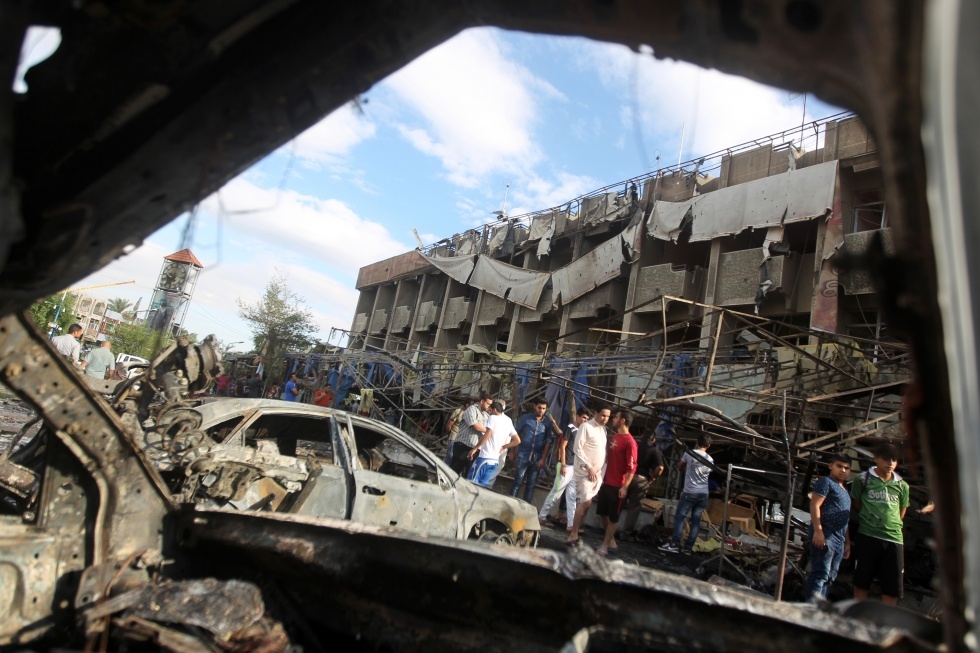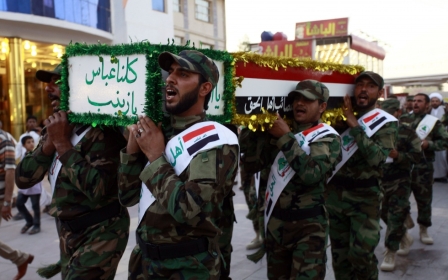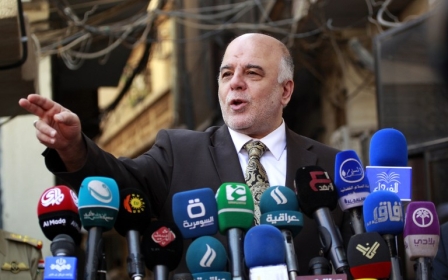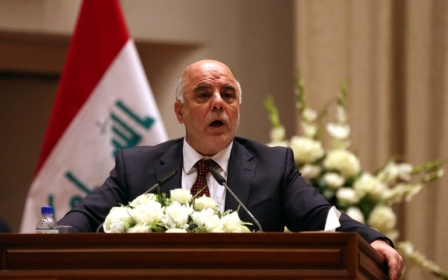Car bombs kill 18 in Baghdad

Three car bombs exploded in a Shiite area of northeast Baghdad on Tuesday, killing at least 18 people, Iraqi security and medical officials said.
Two blasts hit the car park of a large restaurant in the Talbiyah area, while a third exploded near a police patrol which passed by later, also wounding a total of more than 50 people.
The blasts smashed the front of the restaurant, ripping through an outdoor seating area and leaving behind pools of blood on the ground.
Broken glass, tables and chairs littered the area, and the mangled, burned remains of cars sat nearby.
People flocked to the scene to ask whether missing relatives were in hospital or dead, an AFP journalist said.
One of the weeping relatives of the victims at the scene blamed the government and politicians, shouting: "Where is the government, where is the transparency and democracy?"
"They are killing civilians in cold blood and we are still talking about democracy -- we elected them, but today we regret it."
The attacks were the latest in a series of bombings targeting the capital that have left more than 50 dead in three days.
There was no immediate claim for the bombings, but the Islamic State (IS) group, which has seized large areas of Iraq since June, has said it carried out other similar attacks in recent days.
Suicide bombers struck Shiite mosques in Baghdad on Sunday and Monday, killing at least 33 people in total.
The Iraqi government has relied on Shiite militias to help resist IS, although some of them were involved in brutal sectarian killings in past years.
Iraq minister vows to probe army debacle in IS assault
Meanwhile, Iraq's new defence minister vowed Tuesday to investigate military failings that allowed IS to overrun large areas of the country and to hold those responsible to account.
"We will investigate with depth and sincerity" and hold accountable those who made mistakes or failed to perform their duties, Khaled al-Obaidi said in his first speech since being approved by parliament on Saturday.
"I will not relent in striking corruption and the corrupt, and with God's help, we will work to build a professional military institution."
Obaidi will face major challenges in doing so.
IS-led militants launched a major offensive in June, overrunning Iraq's second city Mosul as security forces collapsed en masse, in some cases even abandoning their uniforms and weapons in their haste to flee.
The militants then swept through much of the country's Sunni Arab heartland, where many residents were deeply mistrustful of Iraq's Shiite-led government.
Prime Minister Haidar al-Abadi has sacked some senior officers, but it will take years to make up the Iraqi military's huge shortcomings in training and discipline.
Corruption is another major problem, with people in some cases buying positions or paying off commanders so they do not have to show up to work.
But the fact that there is a defence minister at all is a positive step -- the post, as well as that of interior minister, were both filled on an interim basis for four years until Abadi's appointment.
The United States has deployed military advisers to assist Iraqi forces and is leading a campaign of air strikes against IS in Iraq and neighbouring Syria, where the militants group also holds significant territory.
But Iraqi forces are so far still struggling to retake and hold territory from IS.
New MEE newsletter: Jerusalem Dispatch
Sign up to get the latest insights and analysis on Israel-Palestine, alongside Turkey Unpacked and other MEE newsletters
Middle East Eye delivers independent and unrivalled coverage and analysis of the Middle East, North Africa and beyond. To learn more about republishing this content and the associated fees, please fill out this form. More about MEE can be found here.




